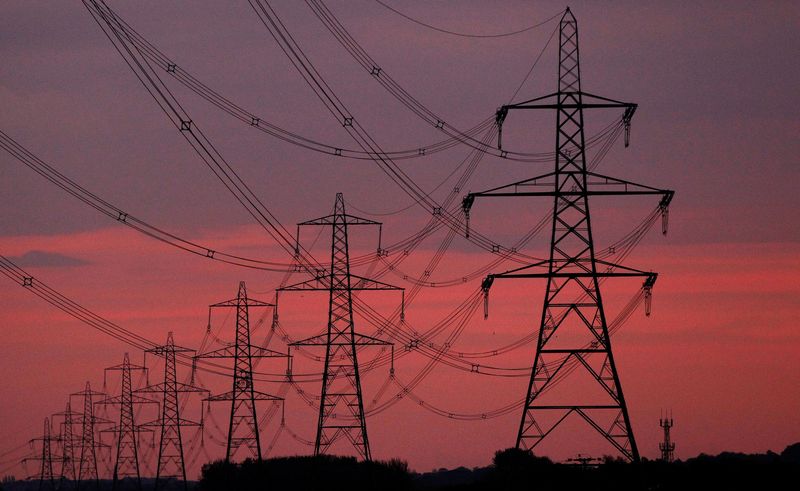By Susanna Twidale and Kate Holton
LONDON (Reuters) -Britain's energy regulator Ofgem said on Monday it plans to review a price cap on consumer bills every quarter rather than twice a year to reflect the volatile price swings in the market and help prevent more suppliers from going bust.
More than 25 suppliers collapsed last year squeezed by record high wholesale energy prices and with the cap preventing them from passing on costs to customers.
Ofgem said moving to a quarterly review would mean the cap is more reflective of current market prices and any price falls would be delivered more quickly.
"Should prices start cooling off again those changes will be passed back through to consumers as soon as possible," Dan Norton, Ofgem price cap deputy director said in a press briefing.
The price cap was raised 54% in April to an average 1,971 pounds a year to reflect soaring global gas prices last year following the reopening of the global economy from COVID-19 lockdowns.
The cost of finding new suppliers for customers whose companies had gone bust also accounted for around 10% of the April price cap increase or 68 pounds a year.
"This change would also help energy suppliers more accurately predict how much energy they need to purchase for their customers, reducing the risk of further supplier failures," Ofgem said in a statement.
British wholesale gas prices hit fresh record highs following Russia's invasion of Ukraine and have remained elevated due to fears over disruption to Russian gas supplies to Europe.
Analysts expect the cap to rise again in October, by more than 30% to an average of 2,595 pounds a year latest forecasts from Cornwall Insights showed.
Ofgem will now launch a new consultation on the plan with the industry. The price cap will change in October and if a quarterly review is adopted it would be introduced for January.
Ofgem's Norton said it was too early to predict whether another price cap rise was likely in January.

The regulator also proposed increasing its "stabilisation charge" - the amount a new supplier must pay to an old supplier when a customer switches providers to compensate for any losses it may make on its power hedges if wholesale prices fall after the customer has left.
Ofgem said this would help prevent firms from going bust but consumer champion Martin Lewis said on Twitter (NYSE:TWTR) the change would be a “disaster” for customers, "killing hopes of firms launching cheaper deals.”